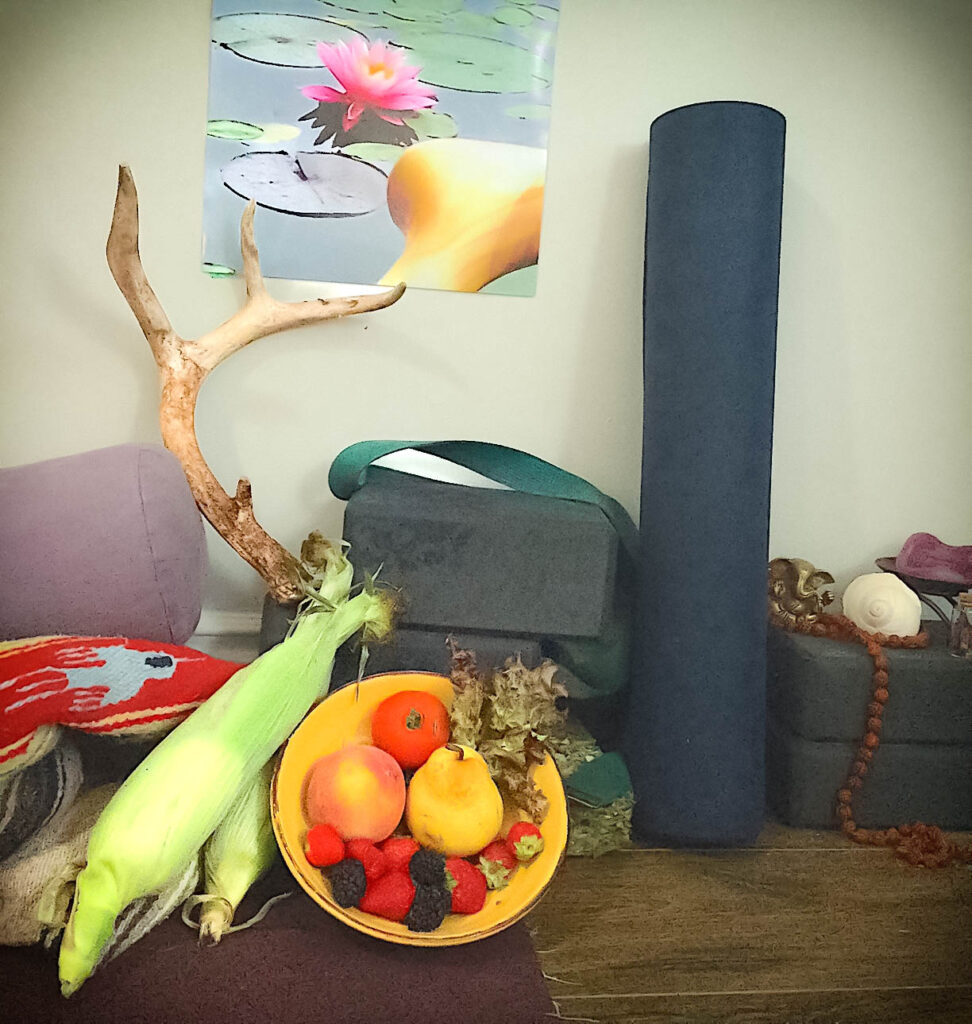Berries in fields and forest, produce of our gardens and farms, sweet corn fill the shelves of grocery and roadside stand. We get to think through our choices of local, and organic, and traditional flows of food in different ways. It is the time of harvesting, and a time to hold gratitude. The rush to inhale the benefits of summer has slowed, festivals attended, and trips taken, blankets and hammocks napped upon, patios and picnics…for many…not all… though the rush to get in that bit of play before the cultural marker of labour day will still affect some choices. Seasonal warmth has begun to shift, water flows changed, and we might just appreciate those later summer blooms of flowers a bit more. The worldview grounded in the 5 Elements Theory of Traditional Chinese Medicine that we may use to work with the energy of chi at times in our yoga practice calls this season of the year, ‘Late Summer’. It is a time to slow and ground, and appreciate the abundance grown by the summer sun as we feel in our bones the shifting of the seasons. Tapping into the element of the earth to find our ground is important as we shift from the warm seasons of Yang towards the cooler of Yin in the yearly cycle. While grounding looks different for all of us in the knowing that fall is closer than farther, some might feel the draw brings more attention, and intention to the ‘sipping’ of the many nectars produced by summers heat. Perhaps similar to many pollinators, bees and hummingbirds focus on collecting the last flowers’ nectar of the season. What “nectars” might we choose to sip, to nourish our bodies, hearts and minds, souls as we shift onwards into the lengthening shadows and cooler nights of soon to be Autumn? This Musing is the first of a series entitled in play as the “sip/asana* sessions” – how might we learn to sip the nectars of life well lived.
* “sip/Asana” – a playful adaption of the way that postures or ‘asanas’ are named traditionally in our practice. Appreciating that postures have evolved over time, and given the dynamism of this practice will probably continue to do so.
